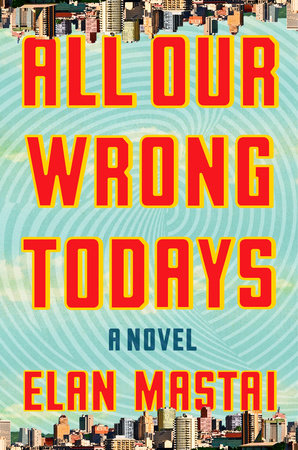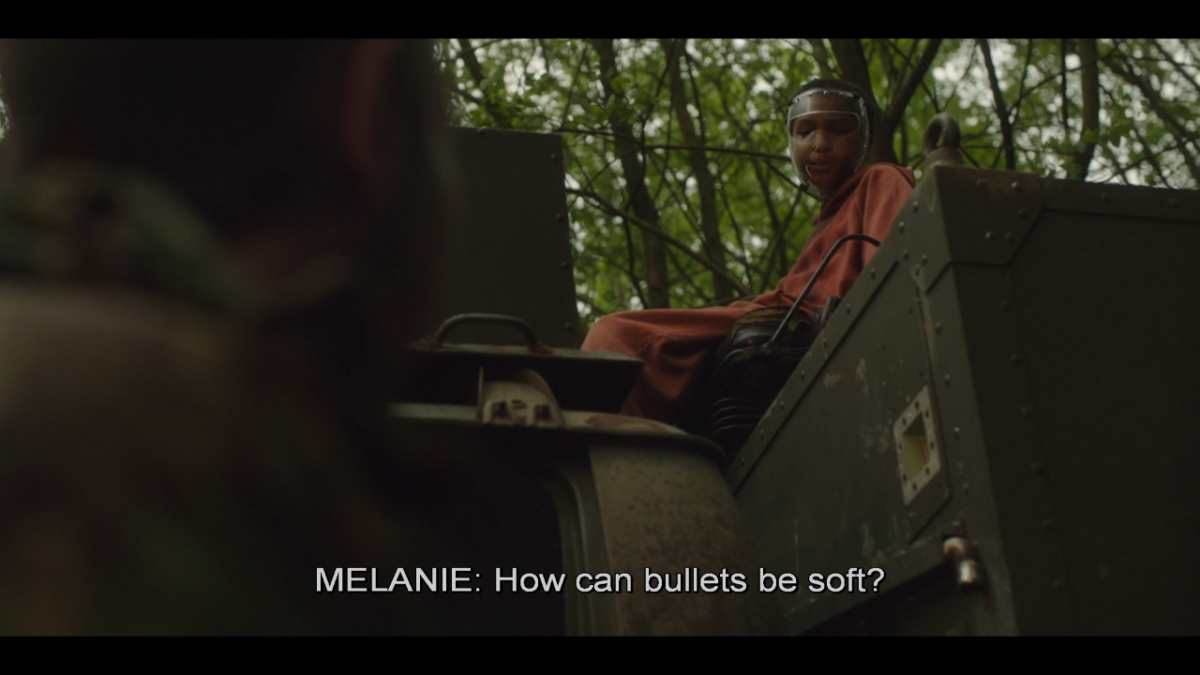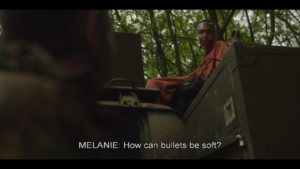One of the benefits of being kind to librarians is the occasional advanced proof of a book that feels written just for you. Sometimes, as is the case with Elan Mastai’s wonderful All Our Wrong Todays, these advanced copies even include a short note beginning with “Dear Librarian,” which makes even the Dystopian Movie Society feel intellectual and savvy.

Mastai’s stunning first novel is a break from his day job, writing movies. No wonder we here at the DMS fell in love. The main character, whose name I shall not print here for reasons that will become apparent if and when you purchase and read this book, is kind of a dick. Naturally, we can all relate to him.
The narrative begins in a utopian society, fueled quite literally by the invention of a device that harnesses the rotation of the Earth to generate unlimited clean energy. Because the inventor dies shortly after his proof of concept, he makes this technology free and open to everyone. Maybe we have watched too many films of a certain genre, or maybe we know too many human beings, but the DMS is deeply skeptical of the idea that unlimited clean energy would lead to the utopia described at the beginning of Mastai’s brilliant story.
The utopia readers see at the start of the book, however, is a prelude to the time travel narrative in which our protagonist becomes the first time-traveler, accidentally creates our reality as a dystopian alternate timeline, discovers the concept of temporal drag, and maybe loses his mind. It is phenomenal. Of the many differences noted between the teased utopia and our own world, my favorite was Kurt Vonnegut.
As the main character tells it, “Vonnegut’s writing is different where I come from. Here, despite his wit and insight, you get the impression he felt a novelist could have no real effect on the world. He was compelled to write, but with little faith that writing might change anything. . . . [I]n my world Vonnegut was considered among the most significant philosophers of the late twentieth century. This was probably great for Vonnegut personally but less so for his novels, which became increasingly homiletic.”
So it goes.
*
If you enjoyed Charles Yu’s How to Live Safely in a Science Fictional Universe, you will love All Our Wrong Todays. Both deftly navigate the narrative pitfalls of branching alternate realities while somehow making the personal relationships explored in each book more important than their time travel plots.
Pre-order All Our Wrong Todays before we run out of tomorrows. Excerpts of the book, ready for public consumption on February 7, 2017, may be read here and here. Support great literature by buying this wonderful read here.



